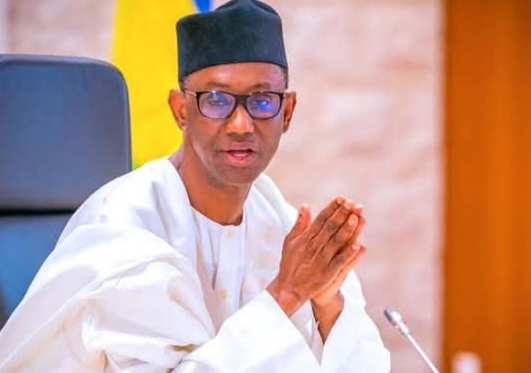Shock in Aso Rock: NSA Ribadu’s Officers Implicated in Alleged Coup Plot Against Tinubu
A storm of intrigue has hit Nigeria’s security establishment as multiple senior Army officers accused of plotting a coup against President Bola Tinubu have been traced to the Office of the National Security Adviser (ONSA), led by Mallam Nuhu Ribadu, a revelation that has sent ripples across the intelligence community.
Sources who spoke to newsmen disclosed that the detained officers, numbering sixteen, were not ordinary personnel but operatives attached to Ribadu’s powerful ONSA, a coordination hub for the country’s armed forces, intelligence, and paramilitary agencies.
Among the detained is Lieutenant Colonel Al-Makura, identified as a nephew of former Nasarawa State Governor and current UBEC Board Chairman, Tanko Umaru Al-Makura.
“The ring leader of the coup is Lieutenant Colonel Al-Makura. Don’t be confused, there are two Al-Makuras in the Army, both brothers and nephews of the former governor,” a senior intelligence official revealed.
“One was detained briefly but released after investigations cleared him. The other — who had just returned from a combat course in China and was recently posted to the NSA office — remains in custody.”
Earlier this month, newsmen exclusively broke the news that senior Army officers had been arrested for allegedly plotting to seize power during Nigeria’s October 1 Independence Day celebrations.
Although the military publicly attributed their arrest to “repeated failure in promotion examinations and perceived career stagnation,” insiders insist the reality was far more sinister.
“The 16 officers were planning a coup,” a Defence Intelligence Agency (DIA) source confirmed. “They had begun holding secret meetings on how to overthrow the President and other top officials. They were arrested at their various homes across the country.”
The source added that the planned coup was thwarted through intelligence-sharing between the DIA and other security outfits.
According to the same source, most of the detained officers hail from Northern Nigeria, and several of the younger ones were allegedly “misled” into joining the conspiracy.
“Seeing the full list of accused officers, most of them are from the North,” the official said. “Sadly, the young ones among them were deceived to join the plan. None of them has access to their families at the moment.”
The development, insiders say, may explain why the Independence Day parade scheduled for October 1 — usually a symbolic national celebration, was abruptly cancelled.
The alleged involvement of officers stationed within the NSA’s office has raised uncomfortable questions about internal loyalty, the integrity of Nigeria’s security chain of command, and the delicate balance of power under President Tinubu’s administration.
As of press time, neither the Nigerian Army nor the Office of the National Security Adviser has officially addressed these new revelations linking the accused officers to ONSA.
But one thing is clear: the specter of a coup, even an aborted one, is a chilling reminder that beneath Nigeria’s democratic veneer still lurk the old ghosts of military ambition.

